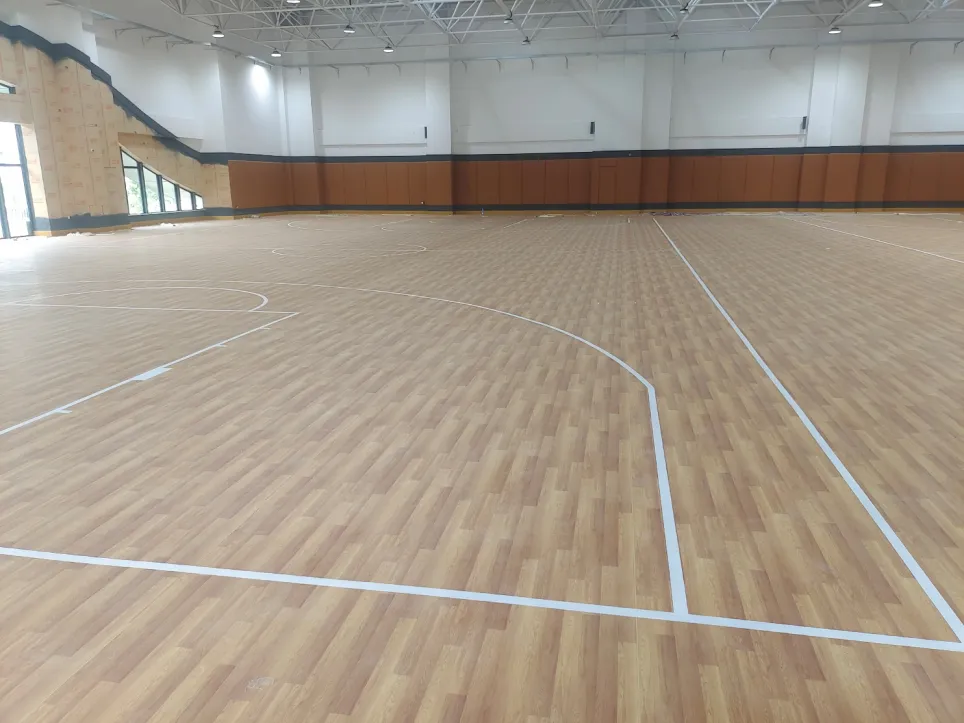- Afrikaans
- Arabic
- Belarusian
- Bengali
- Croatian
- Czech
- Danish
- Dutch
- English
- Estonian
- Finnish
- French
- Georgian
- German
- Greek
- hawaiian
- Hungarian
- Indonesian
- irish
- Italian
- Japanese
- kazakh
- Khmer
- Korean
- Kyrgyz
- Lao
- Latin
- Macedonian
- Malay
- Mongolian
- Myanmar
- Norwegian
- Persian
- Polish
- Portuguese
- Romanian
- Russian
- Serbian
- Spanish
- Swedish
- Tagalog
- Thai
- Turkish
- Turkmen
- Ukrainian
- Urdu
- Uzbek
- Vietnamese
- Zulu
commercial safety flooring
The Importance of Commercial Safety Flooring A Comprehensive Guide
In today's fast-paced commercial environments, safety must always take precedence. One of the critical aspects of enhancing safety in workplaces, public spaces, and commercial facilities is the flooring. A well-designed safety flooring solution not only ensures compliance with relevant regulations but also protects employees, customers, and visitors from slips, trips, and falls. This article explores the significance of commercial safety flooring, various types available, and the key considerations when selecting the right flooring for your establishment.
Understanding Commercial Safety Flooring
Commercial safety flooring is specifically engineered to provide superior grip and traction, significantly reducing the likelihood of accidents caused by slips and falls. These flooring solutions come in a variety of materials, textures, and designs tailored to meet the diverse needs of different commercial spaces such as restaurants, hospitals, retail stores, and educational institutions. The primary function of safety flooring is to provide a high-friction surface that remains safe even in wet or greasy conditions, making it ideal for high-traffic areas.
Types of Commercial Safety Flooring
1. Vinyl Safety Flooring Vinyl safety flooring is one of the most popular options available. It is resistant to moisture and stains, easy to clean, and often incorporates slip-resistant properties. The surface is textured to enhance grip and can be found in a variety of colors and designs, making it functional and aesthetically pleasing.
2. Rubber Flooring Rubber flooring is known for its durability and resilience. It provides excellent cushioning underfoot, which helps in reducing fatigue for employees who stand for long periods. Its inherent slip-resistance makes it a favorable choice for gyms, schools, and healthcare facilities.
3. Carpet Tiles While carpet may not be the first flooring option that comes to mind regarding safety, certain carpet tiles designed for commercial settings can provide slip resistance and ease of maintenance. They can also contribute to better acoustics and comfort in busy environments.
4. Cork Flooring Cork is a naturally anti-slip material and is often used in settings where comfort and safety are priorities. Its unique properties allow it to absorb sound and impact, making it a good choice for offices and other environments requiring a quieter atmosphere.
5. Polyurethane Flooring This flooring type offers a seamless surface resistant to chemicals and abrasions. Polyurethane flooring is highly durable and can withstand heavy foot traffic, making it suitable for industrial facilities and kitchens in restaurants.
commercial safety flooring

Key Considerations for Selecting Safety Flooring
When choosing commercial safety flooring, several factors should be kept in mind
1. Slip Resistance Ratings It is essential to check the slip resistance ratings of the flooring. The American National Standards Institute (ANSI) and the National Floor Safety Institute (NFSI) provide guidelines to help categorize flooring based on its slip resistance in wet and dry conditions.
2. Maintenance Requirements Consider the maintenance needs of the flooring you select. Some materials require regular stripping and waxing, while others may only need routine cleaning with soapy water.
3. Durability The durability of the flooring plays a crucial role in its long-term performance, especially in high-traffic areas. Investing in a high-quality flooring option can lead to significant savings in maintenance and replacement costs over time.
4. Aesthetic Appeal While safety is paramount, the flooring's design and color can significantly influence the overall ambiance of a space. Many manufacturers offer a wide array of styles that complement various interior designs without sacrificing functionality.
5. Compliance with Regulations Be aware of local building codes and regulations related to safety flooring. Many jurisdictions have specific requirements that commercial facilities must follow to ensure the safety of their occupants.
Conclusion
In conclusion, commercial safety flooring is an essential element of workplace safety. By selecting the right type of flooring, businesses can significantly reduce the risk of accidents, ensure compliance with safety standards, and create a welcoming environment for employees and customers alike. Investing in high-quality safety flooring is not just about meeting legal requirements; it reflects a commitment to prioritizing safety and well-being in commercial spaces. As the importance of workplace safety continues to grow, so will the emphasis on implementing effective safety flooring solutions.
-
Benefits of PP Interlocking Floors for Gym SpacesNewsJul.08,2025
-
Durability Testing for Interlocking Sports Floor TilesNewsJul.08,2025
-
Overview of Tennis Court Flooring MaterialsNewsJul.08,2025
-
Portable Basketball Floor SystemsNewsJul.08,2025
-
Eco-Friendly Badminton Court Flooring OptionsNewsJul.08,2025
-
Durability Testing for PVC Floor Mat RollsNewsJul.08,2025
-
Top Materials Used in Tennis Court FlooringNewsJul.03,2025

